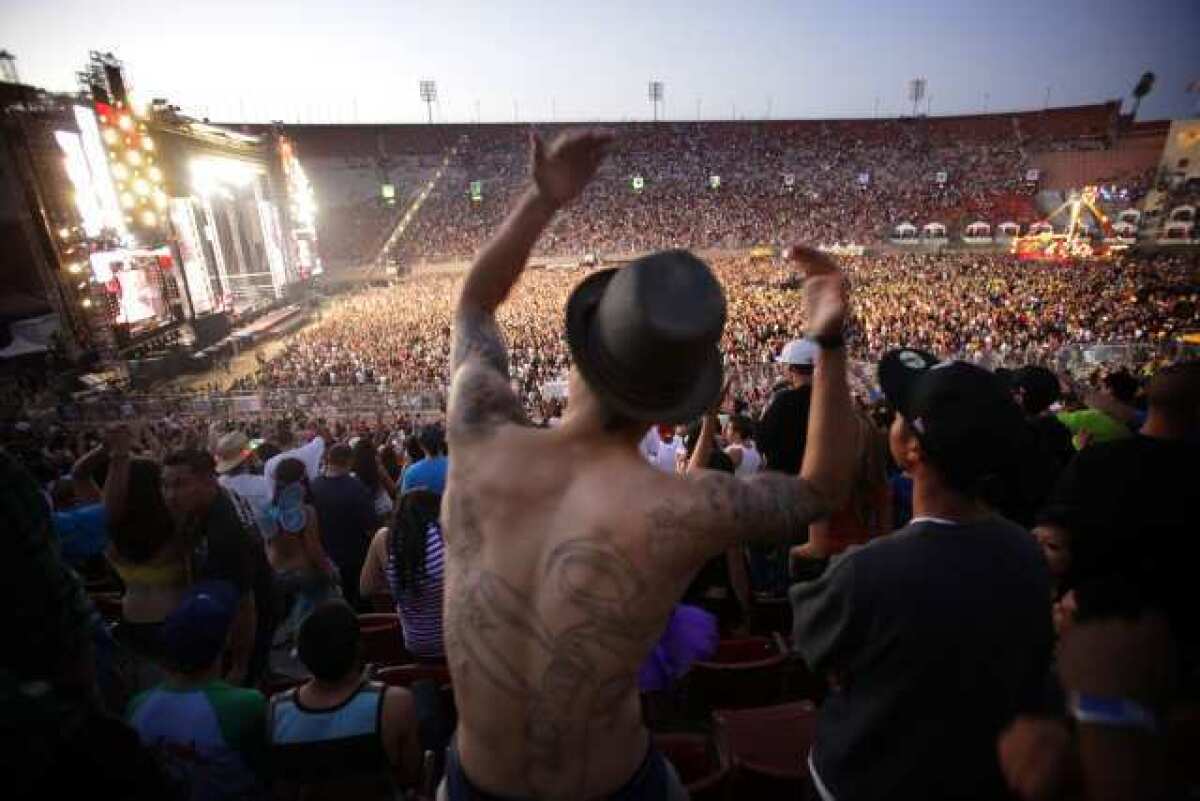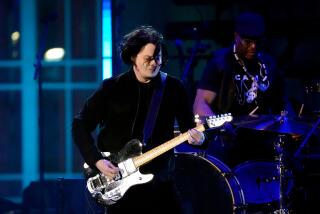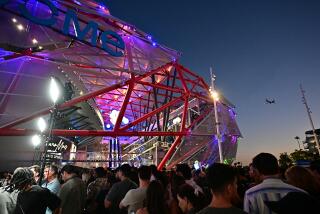Coliseum commission will discuss ban on raves

- Share via
The Los Angeles Memorial Coliseum and Sports Arena could stand to lose significant amounts of money if the public commission that oversees the venues continues a moratorium on rave concerts.
Whether raves will continue at the venues will be a question considered Friday by a joint city, county and state commission that oversees the Coliseum management, which was ordered to impose a moratorium on new contracts with rave producers following the suspected drug overdose death three weeks ago of a 15-year-old girl after she attended the Electric Daisy Carnival.
In response to a public records act request from the Los Angeles Times, the Coliseum management declined to disclose how much it was making from each rave, saying that maintaining confidentiality is critical to keeping the Coliseum competitive in seeking event bookings.
It is clear, however, that raves are big business. The number of attendees has increased dramatically in recent years. In 2009, the Electric Daisy Carnival attracted about 135,000 people over two days; this year, 185,000 attended — the highest number any such rave has attracted since the Coliseum and Sports Arena began hosting the events in the 1990s.
The cost to attend the Electric Daisy Carnival on Friday, June 25, was $75, while the cost June 26 was $85; a ticket for both days was $149.
It’s a “very significant piece of the annual budget,” Pat Lynch, the Coliseum’s general manager, said of such events.
The Coliseum and Sports Arena, which are on state land, operate on event revenues and receive no taxpayer subsidy. Raves — electronic music events that can last 12 hours and feature nonstop dancing — are highly profitable, and the Coliseum or Sports Arena has held four each year since 2008: the Electric Daisy Carnival in June, the Love Festival in August, Monster Massive around Halloween and Together as One on New Year’s Eve.
Emergency room physicians in recent weeks have called for a ban on raves at the two venues, saying that use of the illegal drug Ecstasy is widespread at raves and that those who overdose flood nearby hospitals, putting them at risk for critical illness and death.
Los Angeles County Supervisor Zev Yaroslavsky, a Coliseum commissioner who called for a moratorium on raves after Sasha Rodriguez’s death last month, said Thursday that he would prefer to see the Love Festival — produced by West Hills-based Go Ventures and scheduled for Aug. 21 — be put on hold until officials can review the findings of a county task force set up to study safety at raves.
But a cancellation of the Love Festival could put the Coliseum at risk of a lawsuit if it violates the contract with the rave producer. Yaroslavsky expects that there will be discussion of increased safety measures to be implemented for the event if it is held.
“If the commission determines it has to go forward … it will give us an opportunity, if the new conditions are meaningful … to see if it makes a difference,” Yaroslavsky said. “That would be a guidepost for how we’re going to proceed forward next year and beyond.”
Supervisor Mark Ridley-Thomas, another commissioner, said last week that he wanted to see a way to safely continue holding the events.
“There are ways to meet the test of public safety … and make them viable economically,” Ridley-Thomas said, while adding: “In the final analysis — safety first.”
Insomniac Events, the Los Angeles-based producer of the Electric Daisy Carnival, released a statement that said it will temporarily ban anyone under the age of 18 from attending its dance music festivals. The company has hired a consulting firm to review its safety and security protocols, and create new procedures “adapted to the new challenges involved in music festivals,” the statement said.
“Insomniac remains committed to providing a place for our guests to celebrate safely,” company founder Pasquale Rotella said in a statement.
More to Read
Sign up for Essential California
The most important California stories and recommendations in your inbox every morning.
You may occasionally receive promotional content from the Los Angeles Times.











